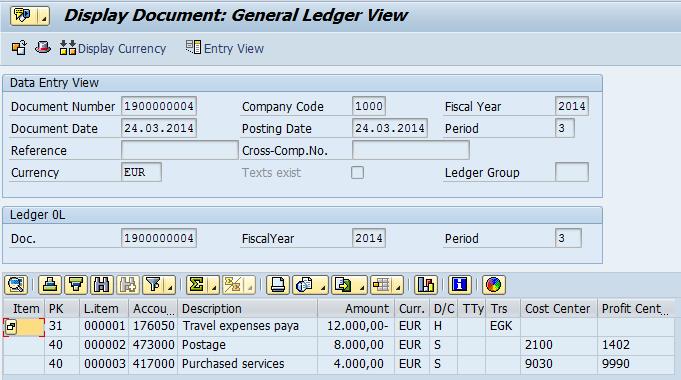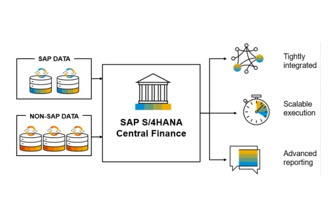Onboarding for New SAP Users
by Michael Management
 Hiring is a challenging process. This is especially true for companies that invest heavily in talent and need that talent to get up to speed as quickly as possible to help the company grow.
Hiring is a challenging process. This is especially true for companies that invest heavily in talent and need that talent to get up to speed as quickly as possible to help the company grow.
This is why proper onboarding for new SAP users is so important.
New SAP users can be brilliant assets to a company. However, new users come with a unique set of challenges. You, as the employer, need to build their skillsets and familiarity with SAP so that they have the tools and information to adequately succeed in their roles.
This is often easier said than done. It’s one thing to hire an experienced ABAP programmer to debug your company’s custom scripts.
It’s another issue entirely to train a new hire on programming, teaching them ABAP in particular, and growing from there.
With that in mind, here are some useful tips that can help you onboard your employees into SAP.
1. Fundamentals First
It can easily feel overwhelming for new SAP users to jump into the thick of things.
That’s why we recommend starting with fundamentals. Fundamentals include essential everyday work like menu navigation, option selection, and more.
This may seem rudimentary, but when you’re dealing with a brand-new SAP user, you have to cover the fundamentals to ensure they can do everything that comes next.
Skipping this section of onboarding can have a massive impact on someone’s future capabilities with SAP. The nomenclature, menu setup, and categorization of SAP is truly unique, even if it’s designed to appear similar to other menus.
Plus, it’s important to note that “fundamentals” can extend to a variety of other ideas as well, including the basics of reporting and other reporting-based skills.
Reporting may not be considered “fundamental” in other software suites, but it’s crucial to the work that every specialist does in SAP.
After all, one of SAP’s biggest advantages is the ability to collect, query, and display vast amounts of data. If someone using SAP doesn’t understand the reporting function, then they most likely won't have the knowledge they need to prove they’re progressing in their position in general or a project in particular.
With that solidified, it’s time to move to some more advanced information by moving your new SAP user into material for their specialty.
2. Moving to a Specialty
SAP specialties vary wildly, and they cover an immense amount of ground. Human resources, programming, finance, logistics, and more are all viable SAP career paths, and they all have their different requirements.
While they may all provide a fulfilling and lucrative employment opportunity to someone who wants to grow their career, each one is not necessarily a good fit for every single person.
Ideally, this is the main portion of the onboarding where you want your new hire to truly grow and excel. In this scenario, you hired someone who would, for example, be a good programmer, HR specialist, financial reporter, etc.
Then, once they understand the basics of SAP, they get the chance to grow into the position for which you hired them.
The core curriculum of this SAP onboarding will differ depending on the specialty that someone is pursuing. Some specialties require more information and cross-functional work than others.
Some specialties are much more pointed and specific, and they may not require as significant of a background in SAP as a whole.
Regardless, this is the time where a new SAP hire will truly start their onboarding process in their assigned position.
As they start this work, you may also move into the next phase of guiding their onboarding by overseeing their proficiency and growth.
3. Overseeing Their Proficiency & Growth
Despite the fact that onboarding often only refers to someone who’s learning a new skill set, it’s also important to note that onboarding requires someone to lead the process.
This may be you. In that case, it’s up to you to not only introduce your new employee to educational materials. You’re also responsible for tracking their progress in different areas, determining whether they meet company expectations and whether they’re ready for real, impactful work.
This may be a challenging determination, depending on the criteria you have to identify success. Some companies leave it up to a hiring manager or a direct manager to say whether a new employee has passed their probationary period. Others may have a strict set of criteria that apply to each and every employee, making it easy for a direct superior to check off items on a list.
Either way, the onus of developing your new talent into a company pillar is on you.
This requires you to keep an eye on their activity in SAP. You may find yourself reviewing applications that they’ve developed or reports that they’ve run. You might even work with them one-on-one to use a new function for the first time or correct their use of a feature that somehow went awry.
This kind of hands-on guidance most often occurs in the first 90 days of someone’s employment, but developing employees is a career-long goal for managers.
That means even after you have your employees fully onboarded, you’ve completed the first step in their career growth.
The next steps could take them in any number of different career directions.
Are You Ready to Onboard Your New SAP Users?
Properly onboarding new users into SAP is certainly critical to your companies success. It may seem like a huge undertaking as well, but keep in mind that you don't necessarily have to develop ya Learning Management System or extensive corporate training materials on your own.
We have prepared all of the learning paths and coursework for you! You can get your new hires (as well as long-time employees) access to our extensive library to find and get the courses that’ll help them truly excel in their roles.
These courses are ideal for new users who have never used SAP before and need to learn it to help a company grow. By the time they complete the learning path for their job role and get their certification, they’ll be in a prime position to start contributing to the company and to offer their own ideas on how the company may improve.
by Michael Management
More Blogs by Michael Management

Unlock Financial Precision: The Critical Role of...
Mastering Document Splitting in SAP Central Finance: Essential Ins...

Unlocking Success: The Strategic Imperative of Group...
Why is Group Reporting Critical for SAP Central Finance? Masterin...

Kickstart Your Career: Mastering SAP Inventory...
SAP inventory management is an in-demand skill set from large companie...
Related Blogs

SAP Online Training Courses: Are They Worth It?
Companies are always looking for employees with keen, sharp, and up-to...

Learning SAP: Buy or Build SAP Training?
The demand for employees with SAP-related skills has never been higher...

Show off Your SAP Skills: Take an SAP Assessment
Are you a competitive and ambitious professional looking for ways to constantly...
.png)

